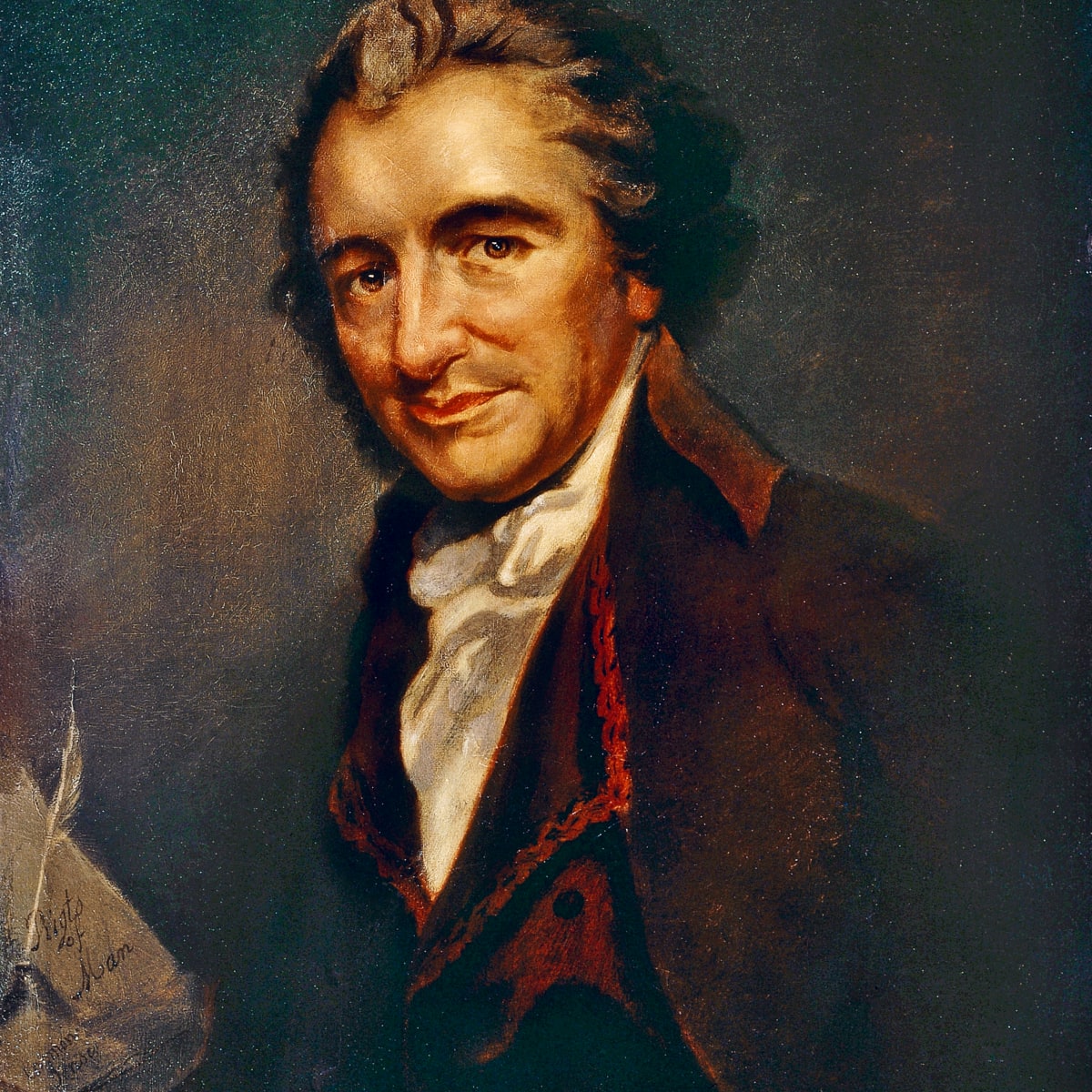Thomas Paine
September 11

AUTHOR OF COMMON SENSE AND THE CRISIS
Through his unparalleled powerful pamphlets Common Sense and The Crisis, Thomas Paine played a critical role in sparking and supporting the American Revolution.
Born in Thetford, England on January 29, 1737, Paine’s eclectic background before the American Revolution included, among other things, careers as a corset maker, merchant seaman, supernumerary officer, excise officer, stay-maker, school teacher, and inventor.
However, although he barely survived the trans-Atlantic voyage, Paine truly found his calling after he emigrated to America (with letters of recommendation from Benjamin Franklin).
He penned Common Sense (1776), which more than any other tract, gave voice to the reasons why the time had come for America to declare independence from the British Empire. In that work, he expressed the American sentiment regarding the purpose of government:
[G]overnment even in its best state is but a necessary evil; in its worst state an intolerable one . . . Government, like dress, is the badge of lost innocence; the palaces of the kings are built on the ruins of the bowers of paradise. For were the impulses of conscience clear, uniform, and irresistibly obeyed, man would need no other lawgiver; but that not being the case, he finds it necessary to surrender up a part of his property to furnish means for the protection of the rest. . . . Here then is the origin and rise of government; namely, a mode rendered necessary by the inability of moral virtue to govern the world; here too is the design and end of government, viz. freedom and security.
Within three months, over 120,000 copies of Common Sense were distributed in colonial America, and Paine’s work became the largest selling book (other than the Bible) in the century. Common Sense in large measure swayed public opinion in favor of independence.
During the difficult days of the Revolutionary War, Paine wrote The Crisis (1776-1777), which helped solidify patriotic support for the war effort In that work, he penned these immortal words:
These are the times that try men’s souls: The summer soldier and the sunshine patriot will, in this crisis, shrink from the service of his country; but he that stands it NOW, deserves the love and thanks of man and woman. Tyranny, like hell, is not easily conquered; yet we have this consolation with us, that the harder the conflict, the more glorious the triumph. What we obtain too cheap, we esteem too lightly: ‘Tis dearness only that gives every thing its value. Heaven knows how to put a proper price upon its goods; and it would be strange indeed, if so celestial an article as FREEDOM should not be highly rated.
Captivated by the events of revolutionary France, Paine went to France and authored The Rights of Man (1791). Although he was not fluent in French, he was made a deputy of the French National Convention. During the Terror, he was imprisoned and nearly executed, but was released by a great stroke of fortune.
He returned to America and died in New York City on June 8, 1809.


